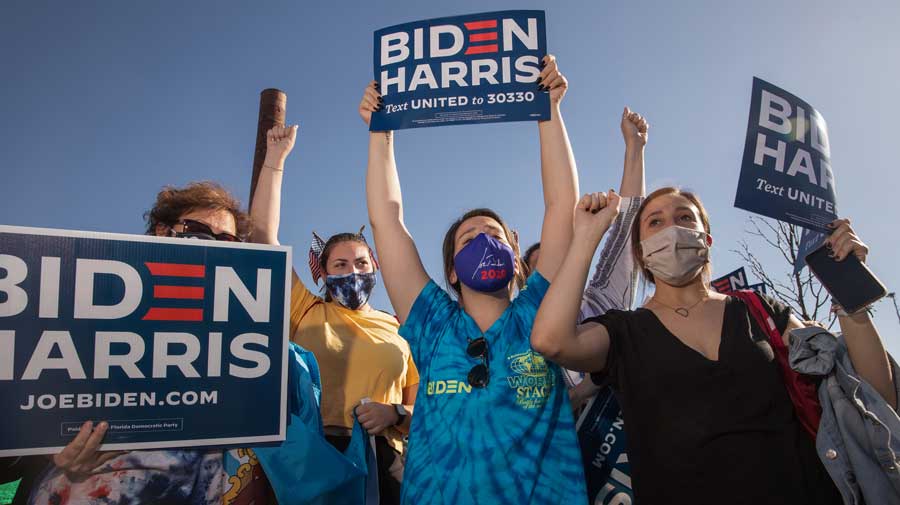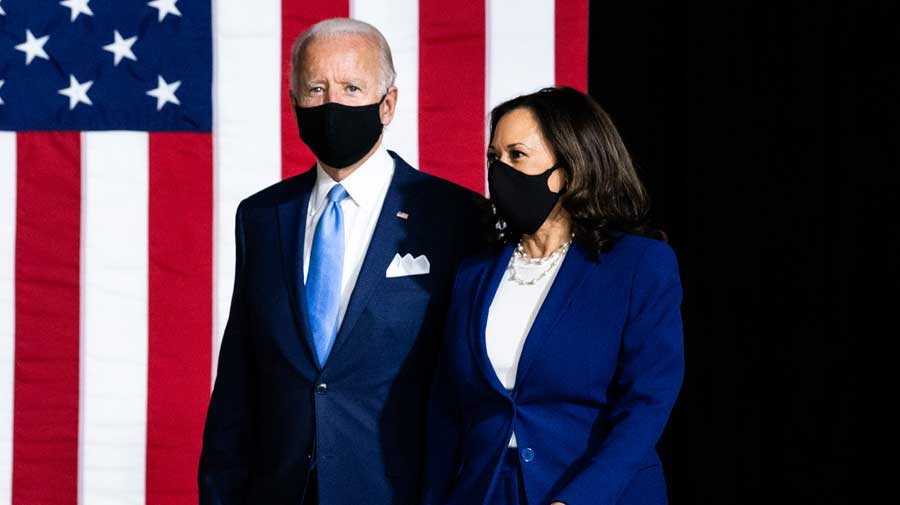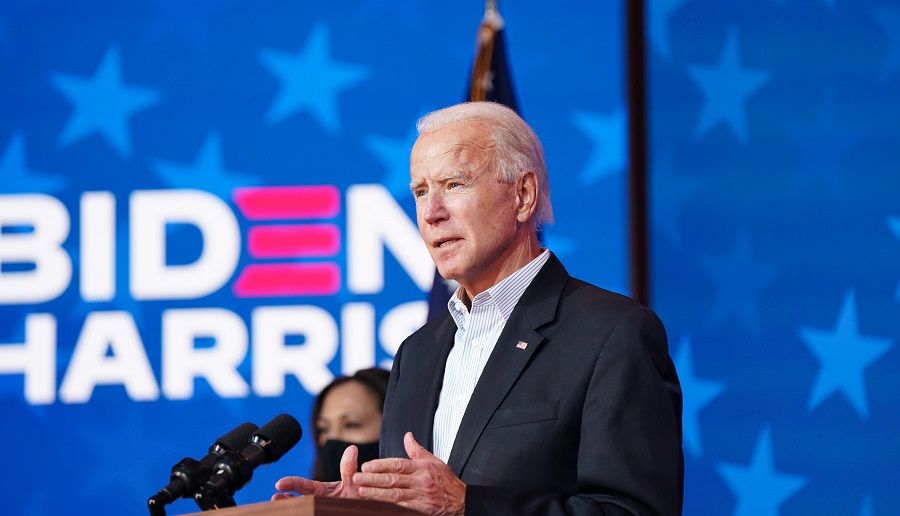The unedifying spectacle of US elections 2020 is drawing to a close. Barring the unforeseeable, Joe Biden is set to become the 46th President of the United States of America in January 2021.
All elections to the post of the US President are seriously contested, at times severely. But at no time in living memory have the bars of either civility or consideration of the interests of the nation been placed so dismally low as in the past few days and weeks.
An incumbent President and his family virtually suggesting action by bands of followers known for their affinity to violence to establish the election results of their choice, and reputable news channels cutting off the President mid-speech for repeated “lying”, will remain blemishes on the image of America.
Conversely, the US media need commendation for standing up firmly for constitutional values against an autocratic demagogue set to fracture the foundational values of his country.
According to experts and analysts, Biden should have had a walkover. This was far from so and the results have come down to the wire.
The lead in popular votes has been 4 million, out of a voter turnout of 160 million (at 68 per cent, the highest in over a century). But the American state-wise, winner-takes-all electoral college does not give primacy to popular votes nationally, as Al Gore and Hillary Clinton have discovered.
Nevertheless, Trump’s showing has been remarkable and he has received numerically more votes than in 2016. Given his patent mishandling of the coronavirus pandemic, the state of the economy and employment, besides his many misdemeanours and false assertions, it would require intellectual calisthenics for experts to explain away Trump’s astonishing performance. It would be important to understand if and to what extent racism and misogyny have now become ingrained in the American psyche.
Externally, Trumpism, as his philosophy may be termed, has done immeasurable damage to his country. Two distinguishing features of the US are its exceptionalism and the ability to sustain liberal democratic values internally while often promoting the obverse externally. The latter may be termed hypocrisy, but it is a contradiction shared by many states externally, and even internally.
Two nations today openly demand an exceptional status for themselves — the United States and China. The latter is still some distance from achieving that status, while it has been the mainstay of America’s place in the world.
The world has accepted American exceptionalism, allowing it to be outweighed by America’s self-defined moral qualities, whatever be the aberrations. Trump’s America is the repository neither of cherished values nor of any moral compass, judging by the actions of the President, and the world looks on it neither as a beacon nor as a reliable and steady partner.
Businessman Trump’s passwords are “transactional” and “amoral”. This can be a perfectly valid basis for relations where the ground rules are known. But it does preclude any claim to exceptionalism, failing which Trump’s pervasive unilaterism becomes increasingly unacceptable.
For people of my generation, American interventions were the bane of the world. Vietnam, Bangladesh and Chile, to name only a few, were followed by the creation of the jihadists in Afghanistan (albeit under Soviet provocation).
Then came Iraq 2003 and the unplugging of a volcano whose bloody consequences are yet to play out. Ironically, today, when the world could have looked to a sober American involvement in countering the relentlessly aggressive behaviour of China and the sparks of authoritarianism in different spots, Trump’s US has not only put America “First” but even withdrawn from different global associations that attempt to establish a rules-based world.
The crucial Paris Agreement on Climate change is but one example. But given the sheer size of the US economy and its global linkages, the US cannot ignore the rest of the world and vice versa.
Biden will be inheriting a scale of issues, domestic and foreign, that are hugely daunting. His repeated assertions of being a President for all Americans and creating unity would come up against those who have come to look upon Trump as a messiah.
The viciousness with which the campaign and its aftermath have been conducted has left sores that may continue to fester. There seems every possibility that Trump may encourage this in the days to come with reckless abandon.
The pandemic has been allowed to spread amid open indifference from the government. Its toll is increasing rapidly and there is no sign of its going away. The economy is in the doldrums and unemployment is at an all-time high.
As Biden seeks to find solutions to pressing domestic problems, foreign affairs are likely to have a lower priority. Moscow will hope that its alleged links with Trump will not sour relations. Beijing will expect a dilution of Trump’s antipathy, but the outcome will also depend on its own aggressive conduct in different arenas.
Hopefully, a reengagement with international agreements will start. A major constraint with Biden will be that at every step he will run the danger of Trump shouting from the sidelines that America “First” is being sabotaged. It would be helpful to have a friendly Senate, but that is yet to be known.
India’s relations with Trump’s America have been steady and positive. There have been no particular favours by either side. The Chinese factor has lately nudged India towards the US in security-related matters. The full parameters and advantages of this are yet to be fully assessed.
At a personal level, the Indian Prime Minister’s public endorsement of Trump would have been noted but is unlikely to affect bilateral relations. Under President Biden, the issue of human rights might become an irritant. But these do not normally acquire large proportions in interstate relations.
India will observe closely Biden’s approach to China. Of direct importance to India would be a pullback by the US in its uncalled for confrontation with Iran. This affects not only our bilateral relations and trade, but also encourages Iran to gravitate towards a new axis that may be detrimental to us.
Deb Mukharji is a retired diplomat who has been India’s ambassador to Nepal and high commissioner to Bangladesh












